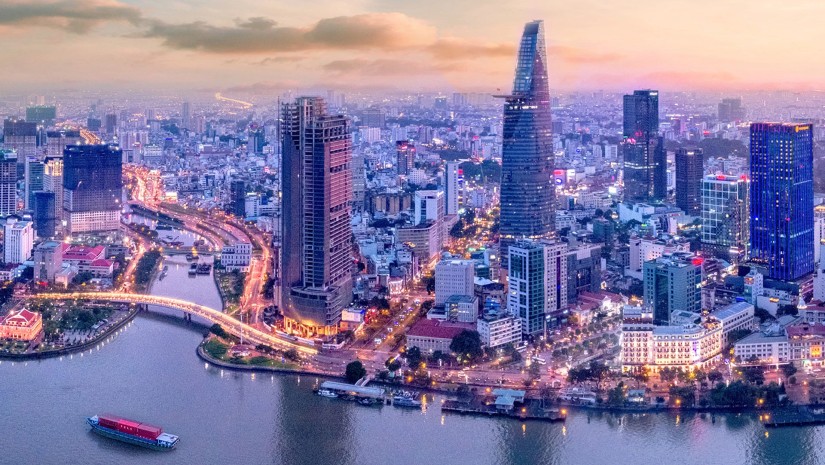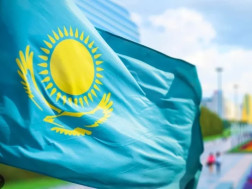The United States dropped more bombs on Vietnam than on Adolf Hitler’s Nazi Germany.
USA ambassador Ted Osius, put it best in a recent book by the title of “Nothing Is Impossible”.
Nothing Is Impossible: America's Reconciliation with Vietnam
Global capital & investors could reconcile with Vietnam when the market graduates from frontier market status to EM emerging market status.
If Singapore was poorer than Africa, Vietnam deserves its place among the rich & prosperous countries in the world. The Vietnamese people are hardworking & smart, the local economy is one of the main beneficiaries of the China +1 theme or narrative.
The “China Plus One” strategy refers to a business strategy adopted by companies, especially multinational corporations, to diversify their production and supply chain activities by adding an alternative manufacturing or sourcing location to China.
Vietnam’s local stock market could see an upgrade from frontier market status to EM emerging market status.
Stefan Zweig opined Brazil is the country of the future and the same might apply to Vietnam stock market and the question of whether it’s a frontier or EM emerging market?
Financial markets run on narratives and often need a catalyst for significant "re-rating".
The EM upgrade for Vietnam could be a major re-rating but like the future of Brazil it did not arrive in Vietnam yet but seems consistently delayed.
In the beginning of the 90s, the per capita income of Singapore was 125 times higher than Vietnam, now it is 24 times. Thailand used to be 16 times higher than Vietnam, now the figure is 2.5 times. Compared to Japan, the figure came down from 267 times to 16 times, or the U.S., the figure decreased from 252 times to the current 25 times.
Once deadly war enemies Vietnam and the United States are now strategic partners.
The Vietnam upgrade from frontier market status has not happened yet but would be a major catalyst for global capital to seek allocation to Vietnam. God’s delays are not necessarily God’s denials and this most probably applies to the Vietnam EM upgrade too.
Liquidity in financial markets can be like a taxi on a rainy New York city night “it disappears just when you need it the most”.
Participants in Vietnam financial markets however have pointed out that Vietnam stock market liquidity has grown steadily in the last few years.
Expected timeline for Vietnam’s upgrading to Emerging Market
Vietnam is still currently classified as a frontier market. The expected upgrade to EM status could lead to a re-rating of Vietnamese assets and result in a profitable investment opportunity. Vietnam's inclusion into some of the world's most influential equity indices could deliver a much-deserved boost in terms of interest from investors in the nation's stock market.
Although investors will find that most private banks and wealth managers are still unable to buy or sell Vietnamese equities directly, I would argue that this should be seen an encouraging sign because the market is still not yet on the radar of most investors but the indications are that it will be in the future.
As of today, Vietnam satisfies 7/9 criteria for FTSE Russel (secondary) EM index and the official review is expected in September 2024. With regards to MSCI EM index, Vietnam currently meets 8/17 criteria for now and 2027 could see full official MSCI inclusion.
Vietnam's inclusion into some of the world's most influential equity indices would deliver a much-deserved boost in terms of interest from investors in the nation's stock market. Vietnam is still currently classified as a frontier market, but has been added to its watch list for possible reclassification as a secondary emerging market. The probability that it will be upgraded by 2027 seems relatively high in my view. the FTSE's secondary emerging category includes China, India, Indonesia, Pakistan, the Philippines among others.
Vietnam could also be classified as an emerging market by MSCI if its free-float rate increases and the market infrastructure is adjusted to better accommodate foreign investors. Most of the concerns pointed out by MSCI about Vietnam’s upgrade are technical and can be addressed with new regulations. Probably the biggest obstacle to overcome would be the willingness of Vietnamese business owners to welcome foreign investment. This openness to foreign investment will form the biggest impression about Vietnam in investors’ eyes, besides the official market status by MSCI.
God delays might not always be god’s denials and when the VN market re-rating finally arrived it will be rather profitable for the patient & strategic investors in Vietnam’s capital market.
Recent Vietnam corporate bond market challenges could be more s problem of pricing risk correctly and ensuring client and investor suitability not just the question of willingness versus ability to re-pay the bonds to local & international investors.
Capital markets and their ecosystem grow in cycles of boom & bust and higher medium-term volatility is a sign of a dynamic & free capital market.
According to Vina Capital research & Bloomberg data, VN equities are trading at the lowest valuation in 10 years. Vietnam offers Appealing Valuation from Earnings Yield Spread Perspective. On a macro level, Stronger balance sheet to stand against economic headwinds.
Geopolitical conflicts have impacted commodity prices and markets, increased inflationary pressures as well as the risk of a new inflation-interest rate spiral. And Vietnam is not an exception.
Having said that, in the global context, Vietnamese economy stability amidst geopolitical instability and the re-rating to EM market status is a question of when and not if.
In the final analysis and in the words of a Chinese proverb, fortune favours the brave & the prepared mind.
By Rainer Michael Preiss, Partner & Portfolio Strategist at Das Family Office in Singapore.
















